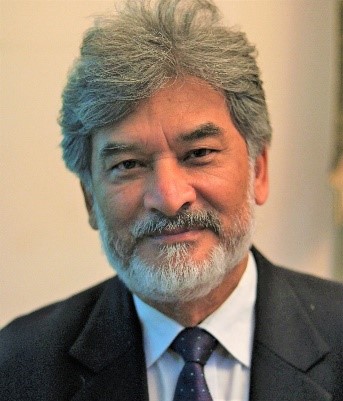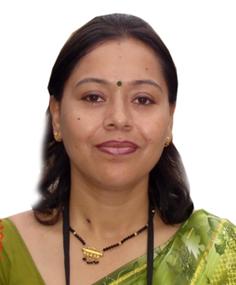
Dr. Sameer Mani Dixit is a biomedical research scientist working in the public health sector of Nepal, focusing on infectious diseases. His postgraduate and Doctorate degrees are in Immunology and Recombinant DNA technology from Australia. His experience in public health research is over 15 years and over 20 years in basic/applied science. He has been actively involved in various forms of academic and programmatic research of public health importance- usually as Team Leader/ Principle Investigator. His work experience has allowed him to develop working relationships with various national and international organizations. His strength is in planning and implementing field and laboratory based (biomedical) research in infectious diseases of public health importance in developing countries.
Recent publications
- Sakas Z, Hester KA, Ellis A,..Dixit SM.. et al., Critical success factors for high routine immunisation performance: a qualitative analysis of interviews and focus groups from Nepal, Senegal, and Zambia. BMJ Open 2023;13:e070541. doi: 10.1136/bmjopen-2022-070541
- Bednarczyk RA, Hester KA, Dixit SM, et al., Exemplars in vaccine delivery protocol: a case-study-based identification and evaluation of critical factors in achieving high and sustained childhood immunisation coverage in selected low-income and lower-middle-income countries. BMJ Open 2022;12:e058321. doi: 10.1136/bmjopen-2021-058321
- Hester, K.A.; Sakas, Z.; Ellis, A.S.; Bose, A.S.; Darwar, R.; Gautam, J.; Jaishwal, C.; James, H.; Keskinocak, P.; Nazzal, D.; et al. Critical Success Factors for High Routine Immunization Performance: A Case Study of Nepal. Vaccine X 2022, 12, 100214.
- Manandhar S.,..Dixit SM., et al. Risk factors for the development of neonatal sepsis in a neonatal intensive care unit of a tertiary care hospital of Nepal. 2021. BMC Infectious Diseases (2021) 21:546 https://doi.org/10.1186/s12879-021-06261-x
- Dixit SM, Sarr M, Gueye DM, et al., Addressing disruptions in childhood routine immunisation services during the COVID-19 pandemic: perspectives from Nepal, Senegal and Liberia. BMJ Global Health 2021;6:e005031.
- Hogan, S, McBride, K, Page, & Dixit, SM. Hepatitis B prevalence in the Indian Subcontinent: a systematic review and meta-analysis. Int J Epidemiol 50(1), 10.1093/ije/dyab168.282.
- Hogan, S., Page, A., Ogbo, F., Dixit, S.M., et al. Trends and determinants of HIV transmission among men who inject drugs in the Pokhara Valley, Nepal: analysis of cross-sectional studies. BMC Public Health 21, 269 (2021). https://doi.org/10.1186/s12889-021-10331-9
- Schwind, J.S.; Norman, S.A.; Rahman, M.K.; Richmond, H.L.; Dixit, S.M.; Rajbhandari, R.M.; Wagner, S.K.; Karmacharya, D. Health Reporting Characteristics among Journalists in Nepal Utilizing a One Health Framework. Int. J. Environ. Res. Public Health 2021, 18, 2784. https://doi.org/ 10.3390/ijerph18052784
- Luxton JJ, McKenna MJ, Lewin A Dixit SM.. et. al. Telomere Length Dynamics and DNA Damage Responses Associated with Long- Duration Spaceflight.2020. Cell Reports 33(10):108457
- KC S, Murphy H, Dixit SM, et al. Hepatitis C (HCV) therapy for HCV mono-infected and HIV-HCV co-infected individuals living in Nepal. 2020. PLoS Neglected Tropical Diseases 14(12):e0008931

Dr. Archana Shrestha is currently working as an Associate Professor in the Department of Public Health at Kathmandu University School of Medical Sciences, Dhulikhel, Nepal. Dr. Shrestha earned her Bachelor’s Degree in Public Health from Tribhuvan University, Nepal, and her Master from B.P. Koirala Institute of Health Science ,Nepal. Furthermore, she had pursued her Master and PhD from University of Washington, Seattle, USA, and her Postdoctoral research at Harvard University, Boston, USA. She is an epidemiologist and researcher with excellent skills in implementation research, NCDs, community health, and clinical intervention research. She has expertise in developing, testing, and implementing interventions to reduce the impact of cardiovascular and other non-communicable diseases in low-income countries. She is also currently leading a translational research study on nutrition and diabetes. Additionally, she served as a country director for Nepal in collaboration with the University of Washington for the North Pacific Global Health Research Fellows Training program.
Major publications:
- Studying risk factors and clinical outcomes for cardiovascular disease in Nepal.
- Conducting Implementation research to understand and address barriers and facilitators to successfully deploying evidence-based practices to address NCDs in Nepal and Mexico.
- Describing NCD risk factors and testing preventative strategies to reduce cardio metabolic burden in Nepal.
- Conducting randomized controlled trials of environmental and behaviour interventions to improve clinical outcomes for NCDs, specifically cardiovascular diseases and diabetes, in Nepal.
- Effectiveness of a group-based Diabetes Prevention Education Program (DiPEP) in a population with pre-diabetes: a cluster randomised controlled trial in Nepal
- Facilitators and barriers to hypertension management in urban Nepal: findings from a qualitative study
- Applying a User-Centric Design Approach to Develop a Mobile Application for the Management and Treatment of Gestational Diabetes in Nepal (Preprint)
- Community-based lifestyle intervention for diabetes (Co-LID study) management in rural Nepal: study protocol for a clustered randomized controlled trial
- The Association Between Gestational Weight Gain Rate and Birth Outcomes Among Nepalese Women
- Usability, Feasibility, and Acceptability of a Mobile Health Intervention for Women With Gestational Diabetes

Dr. Suresh Mehata currently holds the position of Chief, Policy Planning, Monitoring, and Evaluation Division at the Ministry of Health and Population, Koshi Province, Government of Nepal. Dr. Meheta has Published more than 88 articles in international peer-reviewed journals, and 3 national scale survey reports. Dr Meheta also received Nepal Bidya Bhushan A by President of Nepal on December 2010. His main research areas of interest are Epidemiology of non-communicable diseases, Assessment of physical activity, sedentary behaviour and diet and Physical activity surveillance systems
Major publications:
- Global, regional, and national age-sex-specific mortality for 282 causes of death in 195 countries and territories, 1980–2017: a systematic analysis for the Global Burden of Disease Study 2017
- Global burden of cardiovascular diseases and risk factors, 1990–2019: update from the GBD 2019 study
- Global, regional, and national age-sex specific mortality for 264 causes of death, 1980–2016: a systematic analysis for the Global Burden of Disease Study 2016
- Global, regional, and national disability-adjusted life-years (DALYs) for 359 diseases and injuries and healthy life expectancy (HALE) for 195 countries and territories, 1990–2017: a systematic analysis for the Global Burden of Disease Study 2017
- Global, regional, and national burden of neurological disorders during 1990–2015: a systematic analysis for the Global Burden of Disease Study 2015
- Estimates of the global, regional, and national morbidity, mortality, and aetiologies of diarrhoea in 195 countries: a systematic analysis for the Global Burden of Disease Study 2016
- Global, regional, and national age-sex-specific mortality and life expectancy, 1950–2017: a systematic analysis for the Global Burden of Disease Study 2017
- Global, regional, and national under-5 mortality, adult mortality, age-specific mortality, and life expectancy, 1970–2016: a systematic analysis for the Global Burden of Disease Study 2016
- Measuring performance on the Healthcare Access and Quality Index for 195 countries and territories and selected subnational locations: a systematic analysis from the Global Burden of Disease Study 2016
- Measuring progress from 1990 to 2017 and projecting attainment to 2030 of the health-related Sustainable Development Goals for 195 countries and territories: a systematic analysis for the Global Burden of Disease Study 2017

Dr Sushil Chandra Baral is an experienced health and development expert of Nepal, specialising in health systems strengthening and health policy and planning at the national and international level. He has twenty five years of experience in health systems and services, health policy and planning, operational research and social development sector in developing countries context. He has got considerable professional experience in health system, health policy and planning, health service delivery, health research and programme management. He has contributed to the design of DFID’s support programme to Nepal Health Sector Programme 1 and 2, including design of technical assistance to the Ministry of Health and responsibly managed DFID support to the Ministry of Health under the health sector programme-1 and 2. He is skilled in programme based operational research and scale-up of evidence based best practices with a long-term involvement in Nepal’s health sector in particular disease control programmes in developing countries. He has also gained considerable knowledge and experience in operational research, development of sector wide approach, health service decentralisation, health sector reform, strategic planning, health policy and management.
Publications:
- Yadav P, Saville N, Arjyal A, Baral S, Kostkova P, Fordham M. A feminist vision for transformative change to disaster risk reduction policies and practices. International Journal of Disaster Risk Reduction. 2021;54:102026.
- Thomson DR, Bhattarai R, Khanal S, Manandhar S, Dhungel R, Gajurel S, et al. Addressing Unintentional Exclusion of Vulnerable and Mobile Households in Traditional Surveys in Kathmandu, Dhaka, and Hanoi: a Mixed-Methods Feasibility Study. Journal of Urban Health. 2021;98(1):111-29.
- Rawal LB, Kharel C, Yadav UN, Kanda K, Biswas T, Vandelanotte C, et al. Community health workers for non-communicable disease prevention and control in Nepal: a qualitative study. BMJ Open. 2020;10(12):e040350.
- Mueller S, Soriano D, Boscor A, Saville NM, Arjyal A, Baral S, et al. MANTRA: Improving Knowledge of Maternal Health, Neonatal Health, and Geohazards in Women in Rural Nepal Using a Mobile Serious Game. Frontiers in Public Health. 2020;8(915).
- Mueller S, Soriano D, Boscor A, Saville N, Arjyal A, Baral S, et al. MANTRA: development and localization of a mobile educational health game targeting low literacy players in low and middle income countries. BMC Public Health. 2020;20(1):1171.
- Marston C, Arjyal A, Maskey S, Regmi S, Baral S. Using qualitative evaluation components to help understand context: case study of a family planning intervention with female community health volunteers (FCHVs) in Nepal. BMC Health Services Research. 2020;20(1):685.
- Khatri GK, Tran TD, Baral S, Fisher J. Experiences of an earthquake during pregnancy, antenatal mental health and infants’ birthweight in Bhaktapur District, Nepal, 2015: a population-based cohort study. BMC Pregnancy and Childbirth. 2020;20(1):414. Källander K, Ward C, Smith H, Bhattarai R, KC A, Timsina D, et al. Usability and acceptability of an automated respiratory rate counter to assess childhood pneumonia in Nepal. Acta Paediatrica. 2020;109(6):1207-20.
- Ensor T, Bhattarai R, Manandhar S, Poudel AN, Dhungel R, Baral S, et al. From Rags to Riches: Assessing poverty and vulnerability in urban Nepal. PLOS ONE. 2020;15(2):e0226646.
- Cooke P, Shrestha A, Arjyal A, Giri R, Jones N, King R, et al. What is ‘antimicrobial resistance’ and why should anyone make films about it? Using ‘participatory video’ to advocate for community-led change in public health. New Cinemas: Journal of Contemporary Film. 2020;17(1):85-107. Walker IF, Kanal S, Baral SC, Farragher TM, Joshi D, Elsey H, et al. Depression and anxiety in patients with multidrug-resistant tuberculosis in Nepal: an observational study. Public Health Action. 2019;9(1):42-8.
- Walker IF, Kanal S, Baral SC, Farragher TM, Joshi D, Elsey H, et al. Depression and anxiety in patients with multidrug-resistant tuberculosis in Nepal: an observational study. Public Health Action. 2019;9(1):42-8.

Dr. Sharad Raj Onta, a retired Professor of Community Medicine and Public Health at the Institute of Medicine, Tribhuvan University, has hold various significant positions such as Assistant Dean (Academic) at the Institute of Medicine TU, Executive Vice Chair at the National HIV and STI Control Board under the Ministry of Health and Population, and Member Secretary of the Nepal Health Research Council for the Government of Nepal. Additionally, he serves as a member of the High-Level Policy Advisory Body at the Ministry of Health and Population. His educational background includes an MBBS from Leningrad, Former USSR, an MPH from the UK, and a Ph.D. from Denmark. Dr. Onta has an impressive career history, having served as the President of Physicians for Social Responsibility Nepal (PSRN), an affiliate of the International Physicians for Prevention of Nuclear War (IPPNW), twice a Nobel Peace Prize winner, actively contributing to global peace initiatives. He also serves as the Country Coordinator for the People’s Health Movement in Nepal and is engaged with the Resource Centre for Primary Health Care and the Nepal Public Health Foundation.
Major publications:
- Farming, Health and Environment project to improve the health of farmers and consumers by promoting healthy and sustainable food in Nepal
https://portal.findresearcher.sdu.dk/en/publications/farming-health-and-environment-project-to-improve-the-health-of-f
- Variations in prices of common drugs: case study from two remote districts of Nepal Humla and Okhaldhunga
https://elibrary.nhrc.gov.np/bitstream/20.500.14356/306/1/506.pdf
- A rapid assessment study on health care waste management in Nepal
https://elibrary.nhrc.gov.np/bitstream/20.500.14356/336/1/516.pdf
- Factors Associated with Late Diagnosis of Cervical Cancer in Nepal
http://dx.doi.org/10.7314/APJCP.2013.14.7.4373
- Patterns and determinants of essential neonatal care utilization among underprivileged ethnic groups in Midwest Nepal: a mixed method study
https://doi.org/10.1186/s12884-019-2465-6
- Estimates of delays in diagnosis of cervical cancer in Nepal
https://doi.org/10.1186/1472-6874-14-29
- KEY FACTORS ASSOCIATED WITH LOW BIRTH WEIGHT AT TERM IN NEPAL: A CASE CONTROL STUDY
- Knowledge and Management Practices of Paediatricians about Autism Spectrum Disorder in Kathmandu, Nepal
https://pdfs.semanticscholar.org/342c/e268eb818da43efdf0de793d893a0d0ef1f3.pdf

Dr. Bishnu P Choulagai, an Associate Professor of Public Health at the Institute of Medicine (IoM) in Kathmandu, also serves as the head of the Department of Central Department of Public Health. He supervises MPhil and PhD students’ theses, conducts research as a Principal Investigator, publishes articles, and provides training to faculty members on community-based medical education. His education includes an MPH from Nepal and a PhD in Public Health from Sweden. Additionally, he holds life membership at the Nepal Public Health Foundation and leads a Nepal-based research team in a UKRI-funded project titled ‘Empowering Communities through University Partnership in Public Health: A Pilot Project in Nepal and Philippines.’
Major publications:
- ‘Extent, pattern and risk factors of alcohol and tobacco use among undergraduate students in a university in Kathmandu: A cross-sectional study
- Validation of Nepali Version of Depression, Anxiety and Stress Scales (N-DASS21) among Higher Secondary School Students
https://www.researchgate.net/profile/Poojan-Sharma/publication/369531888_Validation_of_Nepali_Version_of_Depression_Anxiety_and_Stress_Scales_N-DASS21_among_Higher_Secondary_School_Students/links/6420044b66f8522c38d4f5ff/Validation-of-Nepali-Version-of-Depression-Anxiety-and-Stress-Scales-N-DASS21-among-Higher-Secondary-School-Students.pdf
- Work motivation and job satisfaction among health workers at primary health facilities: a cross-sectional study from Nepal
https://doi.org/10.21203/rs.3.rs-30776/v1
- Coronavirus disease 2019 (COVID-19) pandemic in Nepal–current scenario, challenges and way forward
https://doi.org/10.37107/jhas.201
- Community-based education in the Institute of Medicine, Tribhuvan University, Nepal: a qualitative assessment
https://doi.org/10.2147/AMEP.S171377
- Household expenditure on diarrhea treatment among under five children in Godawari municipality of Nepal
https://doi.org/10.33314/jnhrc.v17i3.2181
- A cluster-randomized evaluation of an intervention to increase skilled birth attendant utilization in mid-and far-western Nepal
https://doi.org/10.1093/heapol/czx045
- Jhaukhel-Duwakot Health Demographic Surveillance Site, Nepal: 2012 follow-up survey and use of skilled birth attendants
https://doi.org/10.3402/gha.v8.29396

On March 11, 2013, Prof Dr. Kedar Prasad Baral was appointed as the new Rector of the Patan Academy of Health Sciences (PAHS) by the Honorable Minister of Health and Population (MoHP). His appointment was made on the recommendation of Prof Dr. Jay N Shah, the Vice Chancellor of PAHS, where Prof Baral also heads the Department of Community Health Sciences. Additionally, he leads the Influenza Pandemic Preparedness and Response Project (IPPRP), a research collaboration between the academy and the Centre for Disease Control and Prevention (CDC) in Atlanta, USA. This project supports the Ministry of Health and Population (MoHP) in implementing a National Avian Influenza and Influenza Pandemic Preparedness and Response Plan by developing selected referral service centers for virological and epidemiological surveillance.
Major publications:
- Utilization of Basic Health Services at Primary Health Care Facilities During COVID-19 Pandemic
- Prevalence of and risk factors for overweight among adolescents of a sub-metropolitan city of Nepal
- Relationship between Animal Sourced Food Consumption and Early Childhood Development Outcomes
- Health sector readiness for the prevention and control of non-communicable diseases: A multi-method qualitative assessment in Nepal
- 158 Using co-design process to develop an integrated self-management intervention program for COPD patients in Nepal
- Validation of mental agility test and personal qualities assessment tools for selecting medical students in Nepal

Ajanta Maharjan Singh is a Registered Nurse of Nepal and a faculty of Maharajgunj Nursing Campus Kathmandu, currently involved in guiding nursing students of Bachelor level. She works as a clinical supervisor in the Tribhuvan University Teaching Hospital. She also guides Bachelor’s and Master’s level students in research. She has completed her Master’s degree in Child Health Nursing and has published books on the Fundamentals of Nursing and Nursing Concepts and Principles. She has done studies granted by the University Grant Commission, as well as other research, and has published papers in National and International Journals. Teaching is her hobby and striving for new knowledge is her passion. She is a member of the Nursing Association of Nepal, the Nepal Public Health Foundation, The Global Health Network, the Perinatal Society of Nepal, and a Board member of the Public Health Innovation Centre.
Major publications:
- Perception towards Online Education among the Secondary Level Students during COVID-19 Pandemic
- Knowledge, Attitude and Practice on COVID During the COVID-19 Pandemic: A Systematic Review
- Health Related Quality of Life of Patients with Rheumatoid Arthritis Attending in a Rheumatic Center, Lalitpur
- Job Satisfaction among Nurses Working in a Tertiary Level Government Hospital
- Experience of Mothers Having Preterm Newborns in Neonatal Care Units
- Challenges and opportunities towards the road of universal health coverage (UHC) in Nepal: A systematic review
- Student’s Perception of Academic Courses in B.Sc. Nursing at Nursing Campus Maharajgunj, Kathmandu

Ms. Bhagawaty Kalikotay is a Lecturer at Maharajgunj Nursing Campus in the Institute of Medicine, Tribhuvan University. She is a member of TU Global Initiative 2023 and the Academic Committee of the Nursing Association of Nepal. Ms. Kalikotay is a Trained and Certified member of the Society of Transnational Academic Researchers (STAR) Scholars and a Master Trainer of Health Response to Gender-Based Violence Survivors. Her ongoing research is on Preconception Care (supported by UGC) and the Health Status of Senior Citizens (supported by NHRC). She brings significant experience in teaching and research since 16 years in her academic career.
Publications:
- Awareness on Risk Factors and Warning Signs and Belief about Cancer among General Public in a Community of Biratnagar, Morang
- Symptom Assessment among Cancer Patients Receiving Chemotherapy In A Cancer Hospital
- Mothers’ Awareness on Prevention of Home Accidents among Children in a Community
- Knowledge on Preconception Care Among Bachelor Level Nursing Students of Selected Campuses in Bagmati Province
- Awareness, Perceived Risk and Preventive Practice on Coronavirus Disease (COVID-19) among Cancer Patient in Bir Hospital, Kathmandu Corresponding author
- Awareness, Perceived Risk and Preventive Practice on Coronavirus Disease (COVID-19) among Cancer Patient in Bir Hospital, Kathmandu
- CoronaVirus Disease 2019 (COVID-19) Prevention and Control Measures in Community: A Literature Review

Dr. Biraj Man Karmacharya is the Director of Public Health/Community Programs and Global Engagement at Dhulikhel Hospital (DH) and Associate Professor at the Department of Public Health at Kathmandu University School of Medical Sciences (KUSMS). He obtained MBBS (2003) from Kathmandu University; MS (Tropical Medicine, 2006) from Mahidol University, Thailand; PhD (Epidemiology, 2015) as a Fulbright Science and Technology awardee, and MPH (Global Health, 2017) from the University of Washington in Seattle, USA. He was also the founding co-director of Nepal Studies Initiative at the Jackson School of International Studies at University of Washington. He founded and has been leading the Department of Community Programs/Public Health at DH since 2006, through which he is engaged in developing and setting up innovative community- based health and integrated health and development programs in Nepal. He has also been instrumental in advancing public health training and research in Nepal leading the pioneering programs MScPH (Epidemiology and Global Health) and lately the PhD Program in Public Health at KUSMS. His research interests span across non-communicable diseases, climate change and health, and health systems and policies. He is a recipient of the prestigious Prabal Janasewa Shree award from the Government of Nepal for his remarkable contributions in promoting rural health care and health research in the country on the Constitution Day of Nepal, 2019. Earlier in 2018, he was awarded as one of the Emerging Leaders by the World Heart Federation.
Major publications:
- A mixed methods evaluation of a digital antenatal quality improvement intervention in Nepal
- Impact of digital intervention on antenatal paper records: results from audit of antenatal records
- A cluster randomized controlled trial of an electronic decision-support system to enhance antenatal care services in pregnancy at primary healthcare level in Telangana, India: trial protocol
- Factors Associated with Medication Adherence among Patients with Type 2 Diabetes Mellitus: A Hospital-Based Cross-Sectional Study in Nepal
- Health system capacity to manage diabetic ketoacidosis in nine low-income and lower-middle income countries: A cross-sectional analysis of nationally representative survey data
- Prevalence of prediabetes and associated factors of prediabetic stages: a cross-sectional study among adults in Nepal
- Health system capacity to manage diabetic ketoacidosis in nine low-income and lower-middle income countries: A cross- sectional analysis of nationally representative survey data

Prof. Dr. Abhinav Vaidya, MD PhD is currently the Member Secretary of Nepal Public Health Foundation. He is Professor of Community Medicine at Kathmandu Medical College, Nepal. He is a member of the International Society of Hypertension, and a life member of World NCDs Federation. He is Vice-President of the Nepal NCD Alliance and a Governing Board Member of the Southeast Asia Region NCD Alliance. He holds Bachelor’s degree in medicine from Bangladesh (2000), MD in Community Medicine from BP Koirala Institute of Health Sciences Nepal (2006), and PhD in Medical Sciences from Gothenburg University, Sweden (2014).
He is a leading academician, researcher, and policy-influencer on non-communicable diseases (NCDs) in Nepal. He contributed to Nepal’s Multisectoral Action Plan for prevention and control of NCDs, WHO STEPs surveys in Nepal, and NCD PEN Package implementation. He has published more than 70+ peer-reviewed papers. He also enjoys writing on cardiovascular health for the public.
Selected Publications:
- Sharma S, Matheson A, Lambrick D, Faulkner J, Lounsbury DW, Vaidya A, Page R. Dietary practices, physical activity and social determinants of non-communicable diseases in Nepal: A systemic analysis. PLoS One. 2023 Feb 6;18(2):e0281355.
- Koirala B, Adhikari SR, Shrestha A, Vaidya A, Aryal KK, Kalaunee SP, et al. A National Equity Initiative to Address Noncommunicable Diseases and Injuries: Findings and Recommendation from the Nepal NCDI Poverty Commission. Kathmandu Univ Med J (KUMJ). 2022 Jul-Sep;20(79):376-383. PMID: 37042383.
- Oli N, Pradhan PM, Sagtani RA, Shrestha A, Jaacks LM, Karmacharya BM, Danaei G, Vaidya A. Research Capacity for Prevention and Control of Non-communicable Diseases and their Risk Factors in Nepal: Findings of a Needs Assessment Study. Kathmandu Univ Med J (KUMJ). 2022 Apr-Jun;20(78):147-154. PMID: 37017157.
- Bhandari B, Narasimhan P, Jayasuriya R, Vaidya A, Schutte AE. Effectiveness and Acceptability of a Mobile Phone Text Messaging Intervention to Improve Blood Pressure Control (TEXT4BP) among Patients with Hypertension in Nepal: A Feasibility Randomized Controlled Trial. Glob Heart. 2022 Feb 23;17(1):13. doi: 10.5334/gh.1103. PMID: 35342691; PMCID: PMC8877709.
- Kafle S, Vaidya A, Pradhan B, Jørs E, Onta S. Factors Associated with Practice of Chemical Pesticide Use and Acute Poisoning Experienced by Farmers in Chitwan District, Nepal. Int. J. Environ. Res. Public Health2021,18, 4194.
- Thapa R, Subedi RK, Regmi G, Thapaliya R, Vaidya A, Karki BB. Self-Reported Changes in Risk Behaviours of Cardiovascular Diseases among School Adolescents in Nepal: Application of an Integrated Experiential Learning Approach. Global Heart. 2020; 15(1): 40.
- Vaidya A, Oli N, Eiben G, Krettek A. The Heart-health Associated Research, Dissemination and Intervention in the Community (HARDIC) Trial for Nepalese Mothers regarding Diet and Physical Activity: A Process Evaluation. Kathmandu Univ Med J 2017;58(2):107-16.
- Vaidya A, Gyenwali D, Tiwari S, Pande BR, Jørs E. Changes in Perceptions and Practices of Farmers and Pesticide Retailers on Safer Pesticide Use and Alternatives: Impacts of a Community Intervention in Chitwan, Nepal. Environmental Health Insights 2017:11 1178630217719270.
- Vaidya A, Aryal UR, Krettek A. Cardiovascular health knowledge, attitude, and practice/behaviour in an urbanizing community of Nepal: a population-based cross-sectional study from Jhaukhel-Duwakot Health Demographic Surveillance Site. BMJ Open 2013; 3: e002976.

Dr. Divya Singh Shah holds degrees in MBBS, MD, and completed a Fellowship in Nephrology & Transplant Medicine in Australia. Previously, she served as the Professor & Head of the Department of Nephrology at the Institute of Medicine, Tribhuvan University Teaching Hospital. Currently, she’s the Dean at the Institute of Medicine. She’s a Founder Member of SIMON and the Nepal Society of Nephrology, and she’s also a member of the International Society of Nephrology and The Transplantation Society. Furthermore, she actively contributes to the Nepal Public Health Foundation as a coordination committee member and thematic committee member.
Major publications
- South Asian Transplant Infectious Disease Guidelines for Solid Organ Transplant Candidates, Recipients, and Donors
- Disseminated Nocardiosis in renal transplant recipient under therapy for pulmonary tuberculosis: a case report
- Renal Mucormycosis: Post-COVID-19 Infection Presenting as Unilateral Hydronephrosis in a Young Immunocompetent Male
- Product of serum calcium and phosphorus (Ca × PO4) as predictor of cardiovascular disease risk in predialysis patients
- International Society of Nephrology Global Kidney Health Atlas: structures, organization, and services for the management of kidney failure in South Asia
- The COVID-19 Pandemic Identifies Significant Global Inequities in Hemodialysis Care in Low and Lower-Middle Income Countries—An ISN/DOPPS Survey
- The Global Impact of the COVID-19 Pandemic on In-Center Hemodialysis Services: An ISN-Dialysis Outcomes Practice Patterns Study Survey
- An ISN-DOPPS Survey of the Global Impact of the COVID-19 Pandemic on Peritoneal Dialysis Services
- Transplantation in Asia during the coronavirus disease-19 (COVID-19) pandemic: briefs from member countries of the Asian Society of Transplantation
- Equity in Transplantation Access in Nepal: An Analysis of Gender, Geographic, and Caste-Based Disparities in Transplants












